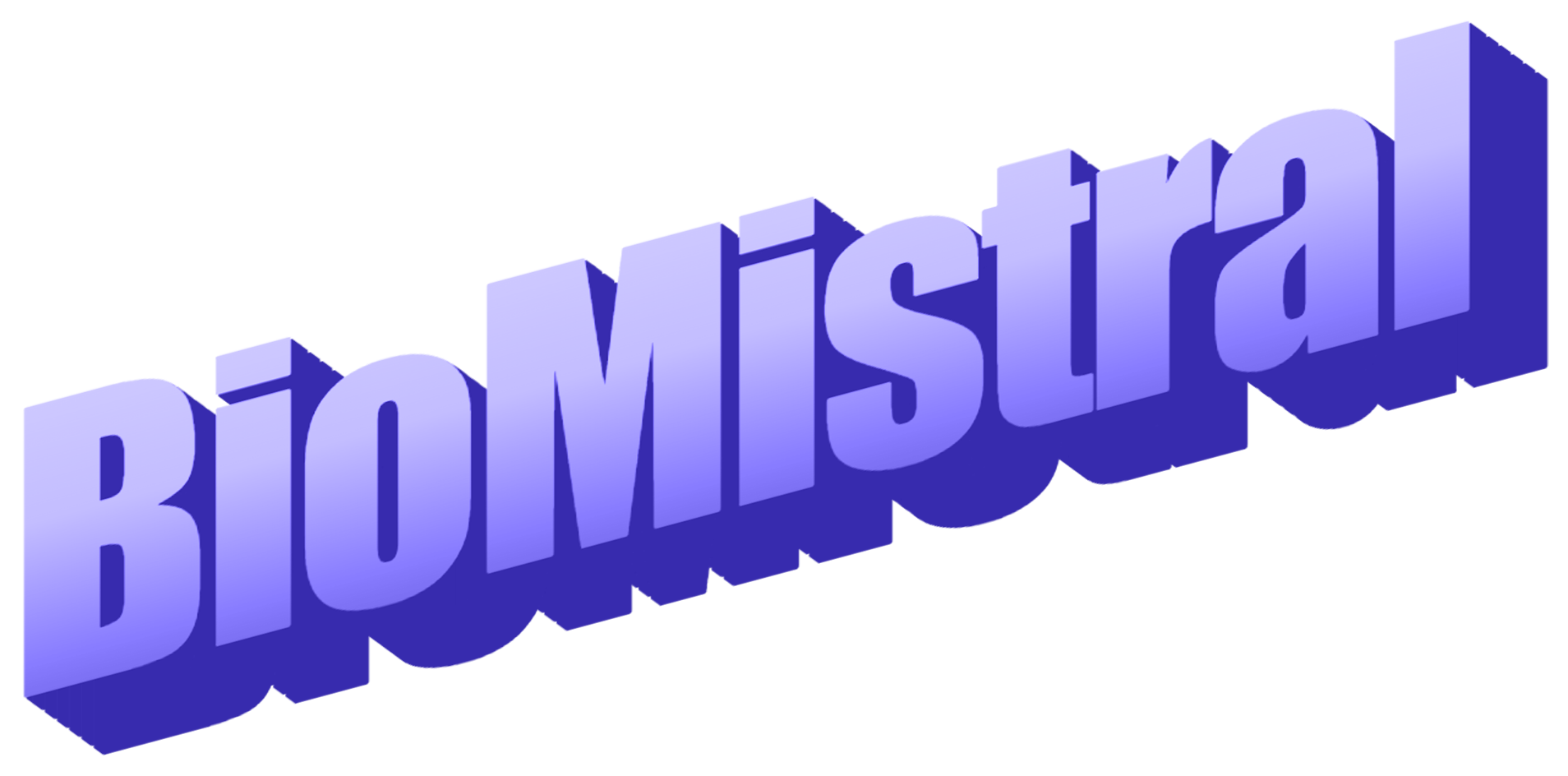A Quantize version of Biomistral made by MaziyarPanahi on HuggingFace. BioMistral-7B-GGUF Model creator: BioMistral Original model: BioMistral/BioMistral-7B
909 Pulls Updated 7 months ago
Updated 7 months ago
7 months ago
e0733a4eee80 · 4.4GB
Readme

BioMistral-7B : A Collection of Open-Source Pretrained Large Language Models for Medical Domains
Abstract:
Large Language Models (LLMs) have demonstrated remarkable versatility in recent years, offering potential applications across specialized domains such as healthcare and medicine. Despite the availability of various open-source LLMs tailored for health contexts, adapting general-purpose LLMs to the medical domain presents significant challenges.
In this paper, we introduce BioMistral, an open-source LLM tailored for the biomedical domain, utilizing Mistral as its foundation model and further pre-trained on PubMed Central. We conduct a comprehensive evaluation of BioMistral on a benchmark comprising 10 established medical question-answering (QA) tasks in English. We also explore lightweight models obtained through quantization and model merging approaches. Our results demonstrate BioMistral’s superior performance compared to existing open-source medical models and its competitive edge against proprietary counterparts. Finally, to address the limited availability of data beyond English and to assess the multilingual generalization of medical LLMs, we automatically translated and evaluated this benchmark into 7 other languages. This marks the first large-scale multilingual evaluation of LLMs in the medical domain. Datasets, multilingual evaluation benchmarks, scripts, and all the models obtained during our experiments are freely released.
Quantized Model
Description
MaziyarPanahi/BioMistral-7B-GGUF contains GGUF format model files for BioMistral/BioMistral-7B.
How to use
Thanks to TheBloke for preparing an amazing README on how to use GGUF models:
About GGUF
GGUF is a new format introduced by the llama.cpp team on August 21st 2023. It is a replacement for GGML, which is no longer supported by llama.cpp.
Here is an incomplete list of clients and libraries that are known to support GGUF:
llama.cpp. The source project for GGUF. Offers a CLI and a server option.
Explanation of quantisation methods
The new methods available are:
GGML_TYPE_Q2_K - “type-1” 2-bit quantization in super-blocks containing 16 blocks, each block having 16 weight. Block scales and mins are quantized with 4 bits. This ends up effectively using 2.5625 bits per weight (bpw)
GGML_TYPE_Q3_K - “type-0” 3-bit quantization in super-blocks containing 16 blocks, each block having 16 weights. Scales are quantized with 6 bits. This end up using 3.4375 bpw.
GGML_TYPE_Q4_K - “type-1” 4-bit quantization in super-blocks containing 8 blocks, each block having 32 weights. Scales and mins are quantized with 6 bits. This ends up using 4.5 bpw.
GGML_TYPE_Q5_K - “type-1” 5-bit quantization. Same super-block structure as
GGML_TYPE_Q4_K resulting in 5.5 bpw
GGML_TYPE_Q6_K - “type-0” 6-bit quantization. Super-blocks with 16 blocks, each block having 16 weights. Scales are quantized with 8 bits. This ends up using 6.5625 bpw